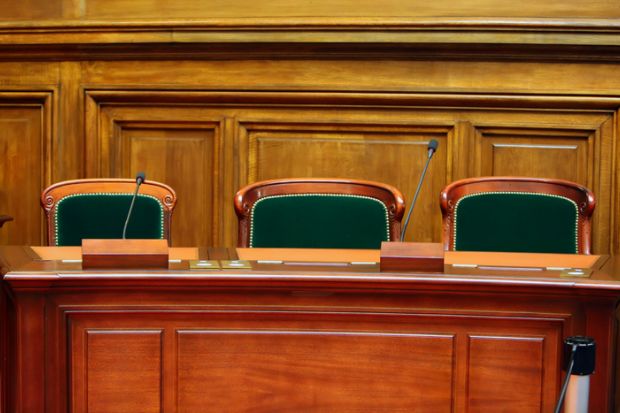The former chief executive and chair of the Office for Students will be among the first to give evidence as a House of Lords inquiry into the work of the English higher education regulator begins.
Dame Nicola Dandridge and Sir Michael Barber will appear in front of the Lords’ Industry and Regulators Committee on 7 March.
Peers have announced a wide-ranging investigation into the OfS, examining whether its duties are “clear and appropriate”, its relationship with universities and with government and whether it has sufficient powers and expertise.
The financial sustainability of the sector will also be examined, including how the OfS oversees financial risks, such as whether some universities are overly reliant on international student fees. Lords are expected to probe how the OfS considers and manages these risks and what would happen if any provider were to fail.
Dame Nicola and Sir Michael led the organisation from its inception in the 2017 Higher Education and Research Act and shaped its more hands-on – and often controversial – approach to regulation.
In the four years it has been fully operational, the OfS has initiated “boots-on-the-ground” inspections of the quality of provision at some providers and introduced benchmarks for continuation, completion and progression that universities must meet or risk being fined or stripped of their registration. It has also moved to regulate providers regarding free speech, blended learning and sexual harassment.
Sector leaders had called for an inquiry into the how the OfS was using its powers and the influence of government on its work. The regulator is chaired by Conservative peer Lord Wharton of Yarm and has been accused of being overly influenced by ministers’ views and priorities.
The Lords said the inquiry will look at the OfS’ performance against its duties and:
- How the OfS’ regulatory framework has developed since its inception
- Its independence from and relationship with the government
- Whether it has the necessary expertise and resources to carry out its functions.
“As the regulator for higher education in England, the Office for Students has an important role in ensuring our universities and higher education providers are high-quality institutions which serve their students,” sais Lord Hollick, chair of the Industry and Regulators Committee.
“The Office for Students is a relatively new regulator, having only become fully operational in 2019. However, since then, the way in which it oversees higher education providers has evolved and changed.
“We therefore feel an inquiry to scrutinise its work is both necessary and timely. The focus of our inquiry will be the suitability of the OfS’ remit and its statutory duties, as well as its role in relation to the financial sustainability of the higher education sector.
Susan Lapworth, chief executive of the Office for Students, said that the regulator welcomed “the opportunity to discuss with the committee the OfS’ work to protect the interests of students”.
“The OfS will work constructively with the committee through the course of its inquiry and do all we can to assist its work,” she said.

